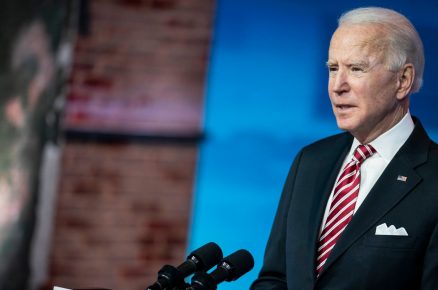Investment advisers are wary of wealth tax legislation introduced Monday by Sen. Elizabeth Warren, D-Mass., and other bicameral Democratic lawmakers, expressing skepticism that it would make the economy fairer and warning that it could be difficult to implement.
The Ultra-Millionaire Tax would impose a 2% annual tax on the net worth of households and trusts worth between $50 million and $1 billion, and a 3% tax on those of more than $1 billion.
Warren, a new member of the Senate Finance Committee, said the legislation would raise $3 trillion in revenue over 10 years to spend on child care, education, infrastructure and other priorities while affecting the 100,000 wealthiest American households.
“The ultra-rich and powerful have rigged the rules in their favor so much that the top 0.1% pay a lower effective tax rate than the bottom 99%, and billionaire wealth is 40% higher than before the COVID crisis began,” Warren said in a statement. “A wealth tax is popular among voters on both sides for good reason: because they understand the system is rigged to benefit the wealthy and large corporations.”
Other authors of the bill include Rep. Pramila Jayapal, D-Wash. and a member of the House Budget Committee, and Rep. Brendan Doyle, D-Pa. and a member of the House Ways and Means Committee.
The idea of wealth tax doesn’t sit well with some investment advisers.
Herschel V. Clanton, president and owner of Chancellor Wealth Management, worries that it will extend beyond the $50 million floor set in Warren’s legislation.
“Once you’ve established the premise that we can tax wealth over $50 million, you can tax wealth over $1 million,” Clanton said. “It just takes another law. It would be devastating to savers and investors.”
Kashif Ahmed, president of American Private Wealth, is a Warren constituent. He said that although he admires her pursuit of her principles, her legislation is misguided because today’s wealth gap is “not as egregious” as it has been at other points in American history.
“That doesn’t mean you demonize the people who have it,” Ahmed said. “This is just a cop-out. The wealthy pay their fair share of taxes.”
Even if a wealth tax became law, people with high net worth would figure out how to “shield their wealth,” he added.
Warren said the bill contains anti-evasion and avoidance provisions.
Diahann Lassus, managing principal at Peapack Private Wealth Management, said wealth inequality has been exacerbated by the coronavirus pandemic.
But she said Warren’s bill may not be the best mechanism to address the problem. There are difficulties in determining individuals’ net worth given complexities surrounding ownership of businesses and real estate, as well as the details of liability.
“I have trouble calculating that for clients who aren’t anywhere near these levels [in the bill],” Lassus said. “That seems like an awful big project. I’m not sure [the bill] is the right approach. I want to see more details. How could you capture that type of information effectively and efficiently?”
TOUGH LEGISLATIVE PATH
The structure of the bill is sure to be an issue as it makes a difficult legislative journey. In an evenly divided Senate, the measure almost certainly would not get 60 votes to break a filibuster. It also might have a tough road in a narrowly divided House.
Alternatively, it could become a provision in a so-called reconciliation bill this fall that could include many Biden administration spending priorities. Under reconciliation, the measure would need only a majority vote in the Senate.
“There will be a big demand for revenue,” said Marc Gerson, a member at the law firm Miller & Chevalier.
But even under reconciliation, Democrats would have to hold together all 50 members of their Senate caucus, including moderates who are leery of tax increases. To keep them on board, a wealth tax bill might have to transform from “aspirational to practical” as it goes through the legislative process, Gerson said.
“That means reconsideration of the scope and appropriateness of any tax increase,” said Gerson, a former Republican counsel on the House Ways & Means Committee. “The question is how do you define wealth and how do you tax wealth.”
During last fall’s campaign, President Joe Biden proposed raising individual rates for people making more than $400,000 and capital gains taxes for those making more than $1 million. Those ideas might also come up in a reconciliation package.
Lassus said lawmakers are right to try to tackle wealth inequality.
“The richest have gotten significantly richer during this time when a lot of other people have lost their jobs or their income,” she said.
Warren’s bill is co-sponsored by seven Senate Democrats — Bernie Sanders of Vermont, Sheldon Whitehouse of Rhode Island, Jeff Merkley of Oregon, Kirsten Gillibrand of New York, Brian Schatz of Hawaii, Ed Markey of Massachusetts and Mazie Hirono, also of Hawaii.








